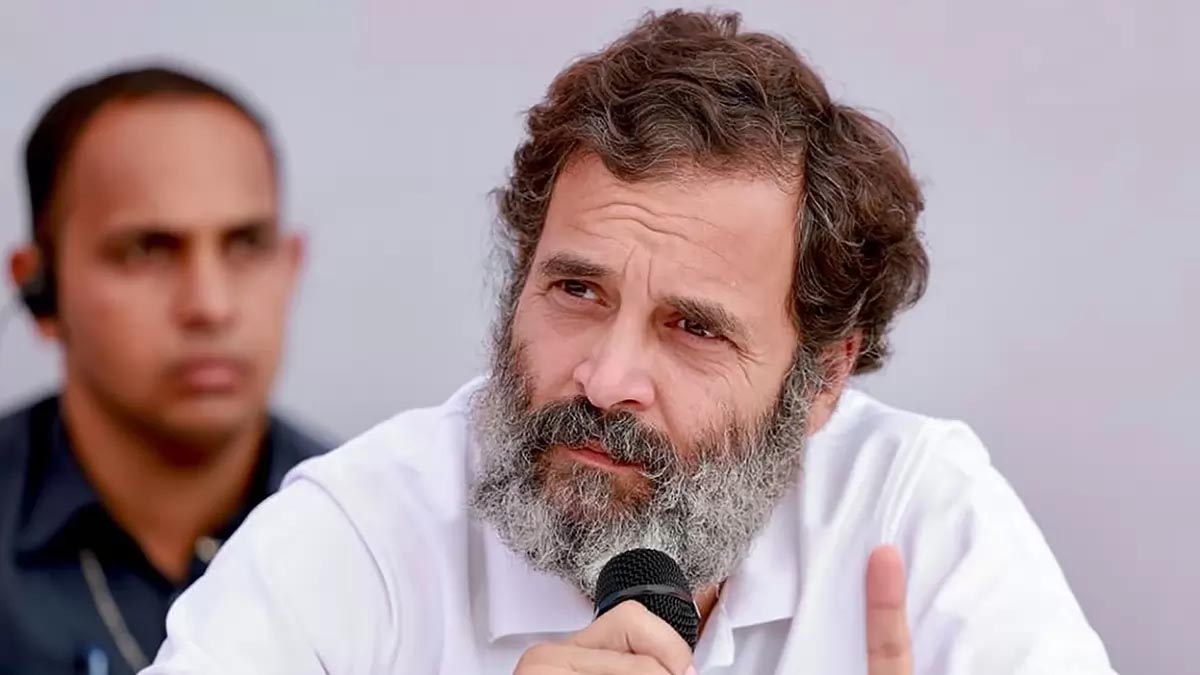Rahul’s conviction in defamation case
AHMEDABAD, Apr 29:
The alleged offence for which Congress leader Rahul Gandhi has been convicted and sentenced to two years in jail is neither serious nor does it involve moral turpitude, his lawyer Abhishek Singhvi said in the Gujarat High Court on Friday while seeking a stay on the former’s conviction in a 2019 defamation case.
A maximum punishment of two years in a bailable, non-cognizable offence means he could lose his Lok Sabha seat “permanently and irreversibly”, which is a “very serious additional irreversible consequence to the person and the constituency he represents,” Singhvi said in his submission in the court of Justice Hemant Prachchhak.
The Gujarat High Court began hearing the former Congress president’s plea challenging the order of a Surat sessions court declining a stay to his conviction in a criminal defamation case over his “Modi surname” remark.
Justice Prachchhak is hearing Gandhi’s criminal revision application challenging the April 20 order of the sessions court.
The sessions court in Surat had rejected his application for stay on conviction, which would have paved the way for the reinstatement of Gandhi as Wayanad Lok Sabha MP.
Arguing in the High Court, Singhvi said, “There are very serious ex-facie vitiating factors of the trial that raise grave apprehension about the process of trial which led to the conviction.”
“In the case of a public servant or a legislator, it has very serious additional irreversible consequences – to the person, the constituency, and also drastic consequences of re-election,” he told the court.
Singhvi told HC that if the Election Commission notifies a bypoll for Wayanad seat and someone else gets elected, then the situation becomes irreversible as this person cannot be unseated even if Gandhi wins his appeal currently pending before the Surat sessions court.
If this special situation “is not enough to suspend conviction, then what additional circumstances can anybody have?” Singhvi argued.
He also raised questions over complainant and Bharatiya Janata Party MLA Purnesh Modi not challenging Gandhi’s application for stay of sentence in the sessions court but challenging the stay on conviction, which led to the Congress leader’s disqualification as MP.
Singhvi questioned Modi’s “possible interest in Gandhi’s disqualification.”
Gandhi, who represented Wayanad in Kerala as a Member of Parliament, was disqualified on March 24 under the provisions of the Representative of the People Act, a day after his conviction and sentence of two-year jail in the case by a trial court in Surat.
Singhvi said complainant Modi was not someone who was named in the alleged speech made by Gandhi during an election rally at Kolar in Karnataka on April 13, 2019.
Under section 499 of the Indian Penal Code, a complainant must be the aggrieved person, which is not the case here, Gandhi’s lawyer said.
Also, there is no “identifiable class of Modi community so as to maintain a complaint”, he said, adding that no one from the 13 crore strong so-called community can file a complaint against Gandhi unless he has been named.
As far as the offending speech is concerned, no evidence under the Evidence Act or IT Act was produced to justify the conviction, he said. The cases on which the court relied upon in fact acted in the favour of the accused, Singhvi said.
In the Navjot Singh Sidhu case cited by the court, he was convicted under section 302 of the IPC but his conviction was suspended. Singhvi said.
“In my case, neither is there a serious case , nor moral turpitude is involved and still conviction is not stayed,” he said.
He said there were as many as six serious errors sufficient to vitiate the trial and grounds for interim protection.
Singhvi said the Supreme Court’s order admonishing Gandhi to remain careful in future over his Rafale case remark, a case that was cited by the trial court, was made on November 14, 2019, while Gandhi’s alleged speech in the present case was made seven months earlier on April 13, 2019.
“There is no question of being retrospectively careful. The learned judge misdirects himself,” Singhvi said. (PTI)


